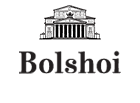Mission
The Bolshoi Theatre of Russia has always been, and will remain, one of the main symbols of our state and its culture. It is Russia’s main national theatre, a bearer of the traditions of Russian music culture and a centre of world music culture, the spearhead of the development of the country’s performing arts.
Chef-d’?uvres of Russian 19th-20th century music theatre occupy a leading place in its repertoire. The principles governing the formation of this repertoire may be divided provisionally into three categories. The Bolshoi presents to its public the Russian classics, the 20th century included, western classics, likewise inclusive of recognized 20th century masterpieces, and specially commissioned works.
The Theatre tries to ensure continuity between generations by promoting the artistic development of young people with talent (thus the Youth Opera Programme has been set up to foster and perfect the skills of opera stars of the future). In order to be able to produce productions to the highest standards for presentation at home and at the world’s leading opera and ballet venues, the Bolshoi Company always keeps itself in good creative trim. Another important direction of the Theatre’s work is to introduce the Russian public to the achievements of the world’s great opera and ballet theatres, as well as to invite guest artists to participate in its own creative endeavors.
The Theatre is a living organism, developing together with the whole of society and in constant search of new creative ideas. At the present stage of development in society, it promotes the formation of new aesthetic priorities in the arts of opera and ballet, particularly in the field of the Russian repertoire.
The Theatre carries out an educative function by performing works rarely found in the repertories of Russian theatres and by inviting cooperation from outstanding soloists, directors and choreographers. To-date, the following directors have worked at the Bolshoi: — Francesca Zambello, Eiumantas Necrosius, Declan Donnellan, Robert Sturua, Peter Konwitschny, Temur Chkheidze, Robert Wilson, Graham Vick, Alexander Sokurov; — and the choreographers Roland Petit, John Neumeier, Christopher Wheeldon, Angelin Preljocaj, Wayne McGregor.
An inherent part of the Theatre’s activities is the presentation of concerts of symphony and chamber works, and of operas in concert performance, thus acquainting the public with works of all music genres.
Print page



